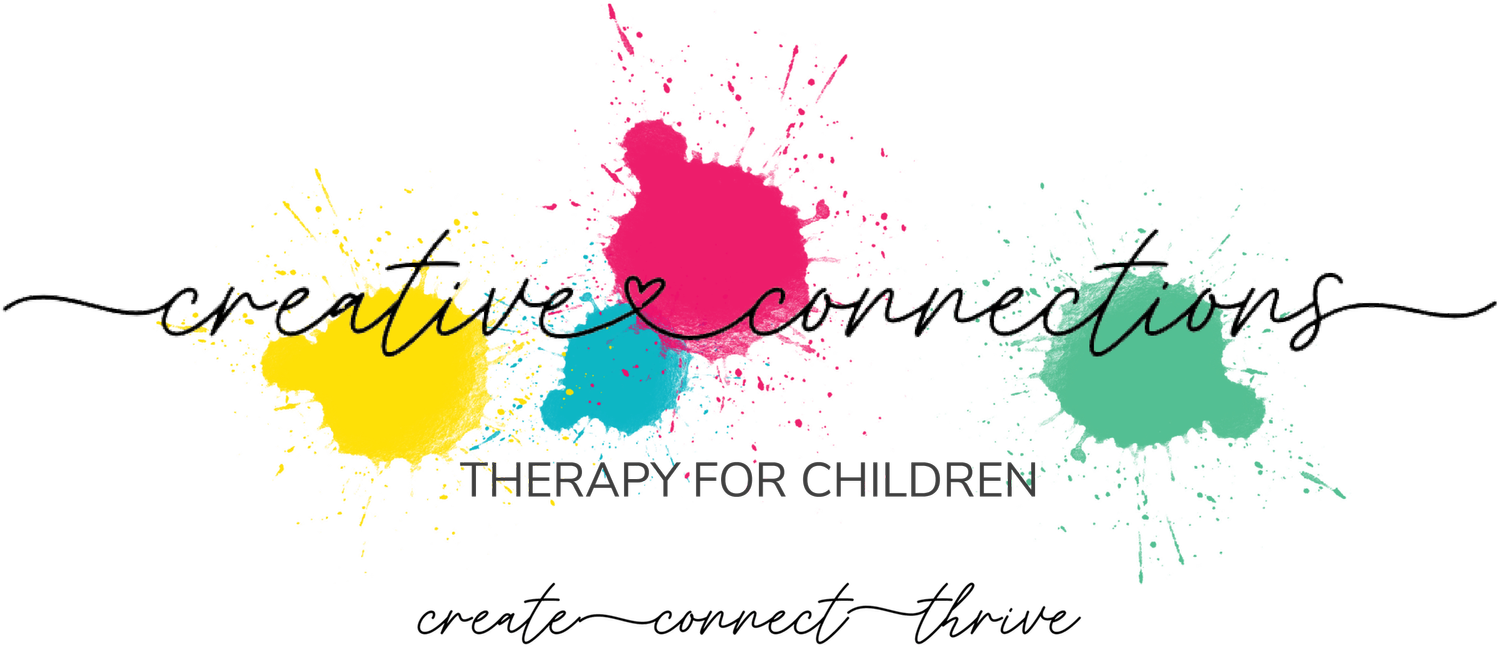
Creative Connections Therapy is here to help children, and young people understand their emotions and feelings, as well as to empower parents and carers with the knowledge and tools to support their children.
At Creative connections we know that it can be overwhelming to sift through all the resources available to you across multiple platforms. To help, we have compiled a list of free resources that can provide you additional support an information. The information has been compiled from frequently asked questions by parents to support families on the journey to gain a deeper understanding of their children.
Spend some time browsing the different sections. We hope it helps to make your life a little bit easier. If you appreciate the free resources kindly encourage others to visit our website. If you would like to explore any area in more depth we would recommend accessing our online or in person parent workshops, which are designed and delivered to give you a deeper understanding of your child’s feelings, emotions and behaviours, with a tool kit of useful strategies.
And remember…
Parenting is hard. But you have got this.
And if you need support, we are here for you.
Resources
-
A personal message from Creative Connections to share with your child.
-
This section is full of videos and ideas to help your children gain tools to cope with difficult emotions and situations, as well as information for you as carers to help you to understand what is happening to your child when they become dysregulated and overwhelmed.
-
Attachment is the deep and enduring connection established between a child and caregiver in the womb and in the first years of life. It profoundly influences every aspect of a person’s mind, body, emotions and relationships both as a child and a parent.
-
Anxiety is a normal, biological response to scary situations, it has kept humans alive for thousands of years. The little “internal alarm “goes off when we need to run (flight), stay still (freeze), or fight; these are sometimes known as the 3 F’s. We can also go into other modes in these situations such as “submit” or “flop”.
-
Physical, Social, Emotional Development, and Sleep are all very important pieces of the puzzle when it comes to supporting children's (and ours) well-being. At the very heart of that puzzle are children's relationships and a feeling of safety. There are a lot of times where children don’t feel safe; being in school or listening to the news are two areas away from the home, that can make children feel worried and unsure. Even if their mind tells them they are safe, their bodies might not feel safe.
-
The importance of sharing in child development cannot be overstated. It’s not just about being polite or following rules; sharing is a fundamental social skill that lays the groundwork for future relationships, teamwork, and empathy. Through sharing, children learn to consider others’ feelings, negotiate, and compromise – all essential life skills that will serve them well into adulthood.
-
Transitions can be likened to navigating tumultuous waters amidst the intricate journey of childhood. Each transition, whether it's the prospect of relocating to a new home, stepping into the unfamiliar halls of a different school, or grappling with significant family changes, can evoke a whirlwind of emotions in children. Just as a ship must navigate stormy seas with care and precision, so too must children traverse the choppy waters of transition, guided by the steady hand of loving support and understanding.
-
Grief is something that will affect everyone at some point, and it will affect each of us in a different way.
-
Trauma is a word that carries weight, etched into the fabric of our lives through experiences that shake us to our core. It manifests in various forms, whether from a single harrowing event or the accumulation of prolonged distress. Regardless of its origins, the aftermath of trauma can linger, casting a shadow over our daily existence. However, within the depths of despair lies the beacon of hope—trauma healing.
-
Play helps lower Cortisol (the stress hormone), increases Dopamine (the pleasure/reward chemical), Oxytocin (the bonding hormone) and GABA(the calmer of the nervous system).
-
Play therapy is a therapy that uses toys and games to help children with autism develop communication and social skills. It's been proven to be an effective way to improve these skills by providing a context that is both comfortable and familiar for the child. Play therapy can also help children with autism build relationships and learn how to interact with others.
-
Play therapy operates with three main mechanisms:
Helping the child process distracting emotions,
Improving the power of decision and executive functioning.
Reducing impulsivity. Together with Parenting Counselling, it is doubly effective.
Children with ADHD have great difficulty focusing on tasks, paying attention and listening. They are very easily distracted and impulsive, and often disruptive. How does a child psychotherapist treat this through Play Therapy?
-
Links
Support to discipline your child
If you’re a fan of short videos, the checkout Tina’s “Mistake Mondays” playlist on YouTube. It’s a short series where Tina Payne Bryson talks about discipline mistakes we make regularly and what we can do instead. These ideas come from her book No-Drama Discipline, co-written with Dr. Dan Siegel.
Neurodiversity resources for parents and professionals
Websites
The Neuro Bears - a great video resource for kids to explain brain differences.
Understood - online resource with quizzes, workplace resources, parenting app, and more.
Debbie Reber - parenting activist helping other parents raise differently wired (TM) kids in a conventional world.
Sensory Processing - STAR Institute - a great resource for learning more about sensory processing.
Help Your Bright Child Thrive - support for parents raising twice exceptional children.
Books
“There is no such thing as maladaptive. In each moment we are responding to cues of safety or threat in the only way we know how based on past experiences”
— Robyn Gabbel

